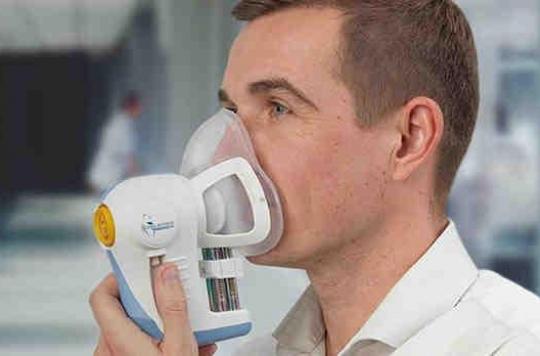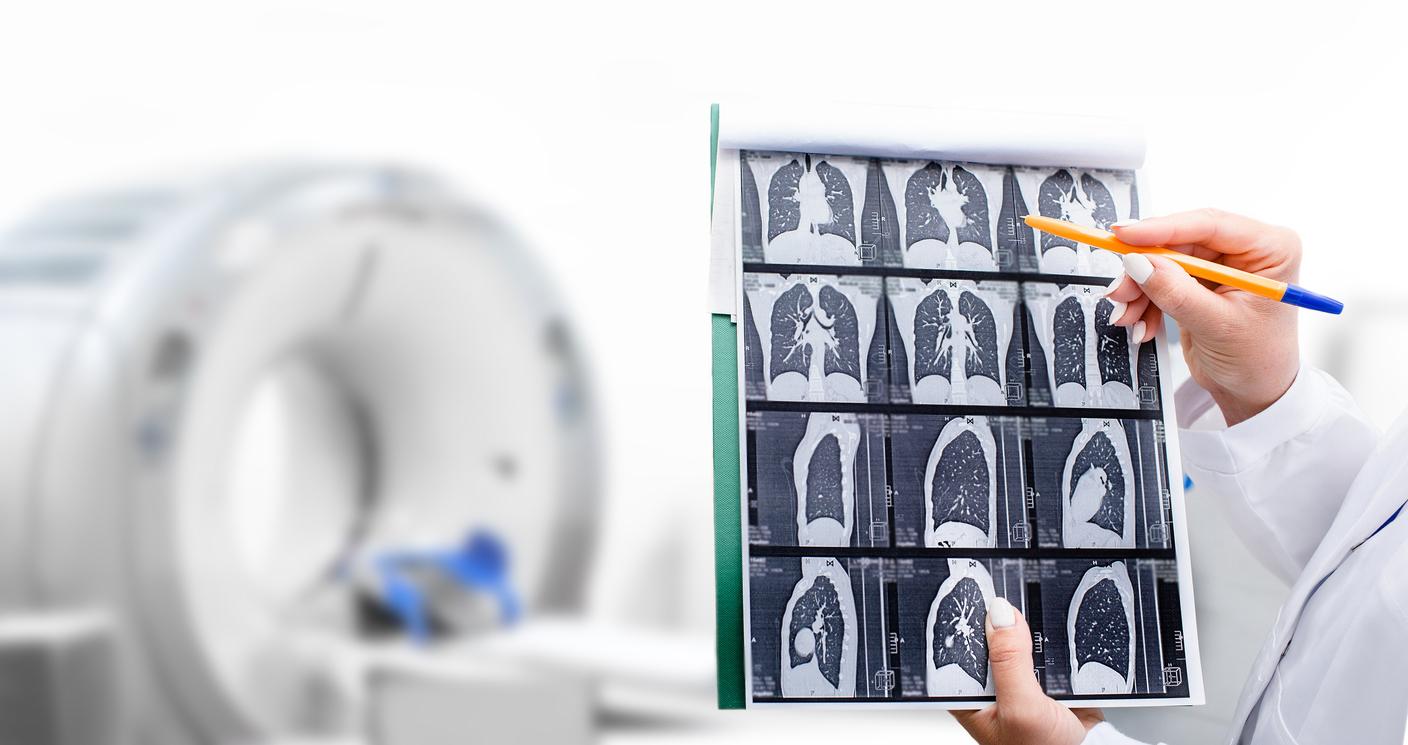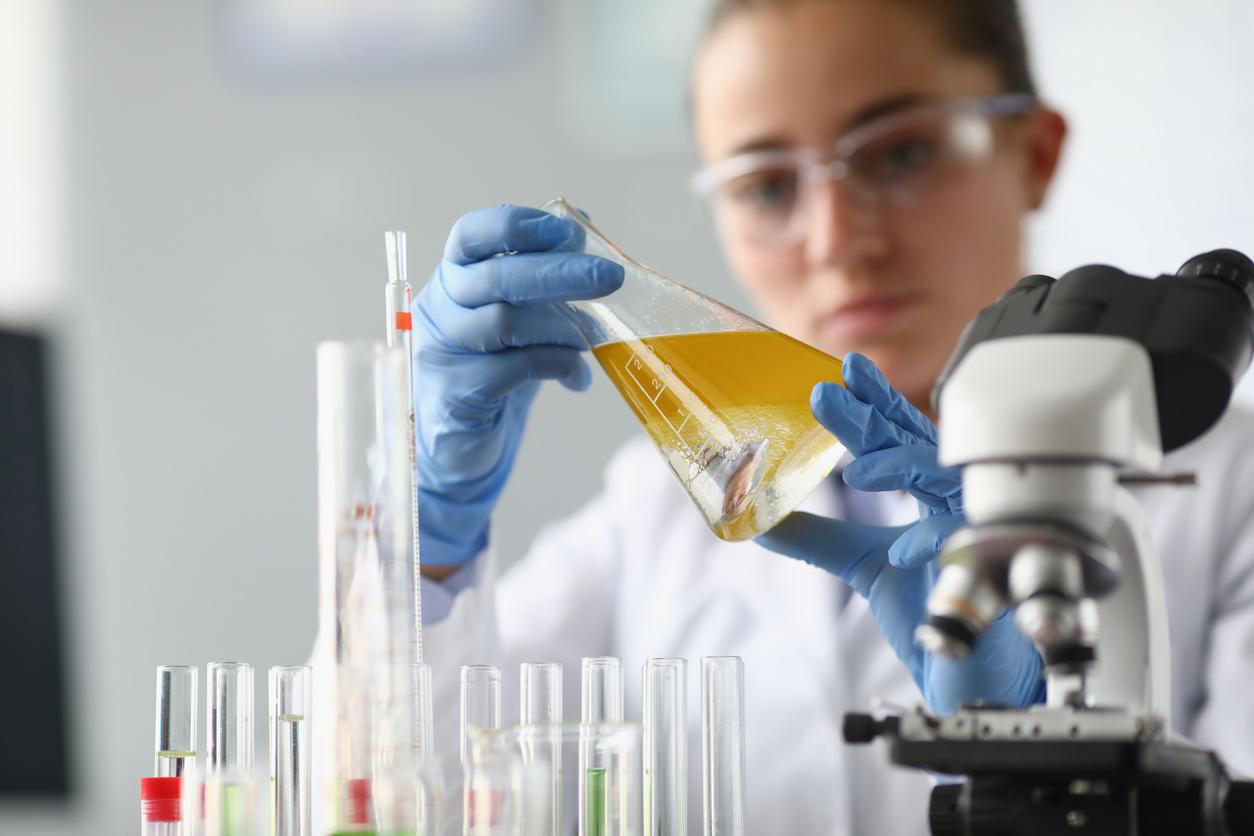A British team is about to start trials of an innovative cancer screening test. Operating on the same principle as a breathalyzer, it would make it possible to diagnose the disease from the breath.

Will it one day be possible to diagnose several types of cancer, including lung cancer, simply by breathing into a device, and even before the first symptoms appear?
This is what gives hope work carried out by a team of researchers from Cambridge funded by Cancer Research UK. They are indeed about to begin trials for a breath test capable of diagnosing the disease by analyzing the patterns of molecules present in the breath.
An inexpensive method to detect cancer at an early stage
In the UK, where the trial is taking place, around half of cancers reach an advanced stage before they are diagnosed. In question: the failure to take into account certain early symptoms such as heartburn or digestive problems, which are confused with other much less serious pathologies. For the researchers, there was therefore an urgent need to find an inexpensive and easily deployable method to detect cancer early.
This new test being tested is based on the analysis of molecules called volatile organic compounds (VOCs), which are released when cells in the body carry out biochemical reactions. When a cancer has grown, the normal behavior of cells is changed, resulting in a different VOC structure. Researchers believe it can be used as an aid to alert doctors to the presence of cancer.
Now the research team is trying to determine if this pattern can be identified in people’s breath, using breath biopsy technology. One of their aims is to determine whether different types of cancer produce different patterns – or signatures – that can be detected at an early stage.
A “revolutionary” method but still under study
To find out, researchers, led by Prof Rebecca Fitzgerald of the University of Cambridge’s MRC Cancer Unit, plan to collect and study the breaths of some 1,500 people at Addenbrooke’s Hospital in Cambridge, UK. Uni, by 2021. Some of those 1,500 people will have been referred to hospital by their doctors because they reported symptoms that could be read as early signs of cancer. Others will be healthy patients. The idea is to compare the breath of those who are later diagnosed with cancer to those who are not to see if there are any special signatures that offer telltale clues.
Among those selected for the study is Rebecca Coldrick, 54, who has a condition called Barrett’s esophagus and could develop cancer. “I was very happy to participate in the trial and I want to contribute to the research in any way I can,” she told the BBC. “I think the more research there is to monitor conditions like mine and the more effective the detection tests developed, the better.
The trial will start with patients with suspected esophageal and stomach cancers, then expand to people with prostate, kidney, bladder, liver and pancreatic cancers over the next few months. “Intuitively, lung cancer seems to be the most obvious cancer to detect in the breath,” says Professor Fitzgerald. “But because of the way metabolites are recycled in the body, a lot of other volatile molecules from other parts of the body also end up respiring.”
“We urgently need to develop new tools, like this breath test, that could help detect and diagnose cancer earlier, giving patients the best chance of surviving,” she said. A view shared by Dr David Crosby, head of early detection research at Cancer Research UK, who said breath tests were a technology that could ‘revolutionize the way we detect and diagnose cancer in the future’ .
However, the researchers point out that this is only a “pilot study” for the moment and that it will be necessary to wait two years before knowing the results of this exploratory trial.

.

















